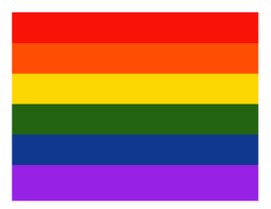Do people with disabilities think and participate in sexual activities? Can people with disabilities be gay, lesbian, bisexual, or transgender? These are probably questions that we do not ask ourselves everyday or maybe even never, however, there 1 out of 5 persons who are disabled according to the ADA. (Mauro, n.d.)
Robert Mauro (n.d.) reports that "about 13.5 million people, 7.5 per cent, [1 out of 20], have a severe disability--defined as unable to perform activities such as walking, lifting, hearing, or reading, or only with the help of another person. This percentage is based on the number of people with at least one disability, although many have multiple disabilities."
Recently I was reviewing a colleague's paper on transitioning needs for the adolescent individual with cerebral palsy. Cerebral palsy is just one of the many diseases people can be born with which lends the individual a disability. Cerebral palsy is a disease that affects 1 to 2 per 1,000 births. Cerebral palsy affects the motor function and coordination which can often lead to involuntary movements of the head, arms, and legs. Additionally, balance and posture are affected and individuals may have difficulty with walking and the more severe rely on wheelchairs for mobility.
What caught my interest, and critical judgment, in my colleagues' paper is that there was no mention of sexuality discussions in planning the transitions for the soon to be young adult afflicted with a disability. Individuals with disabilities are just like you and I in that they have the same sexual needs and desires, and yes they can be GLBT as well.
Leave it to the Canadians to put out a booklet for individuals with cerebral palsy and sexuality. This booklet is titled "Sexuality and Cerebral Palsy". Lindenberg (2003) states the people with cerebral palsy (CP) are as likely to be GLBT as anyone else. "Acknowledging a difference in their sexuality may be harder for people with CP, and a little more risky." Additionally he recommends "Tell others gradually: preferably supportive people you trust. Not everyone will be comfortable with your 'coming out'. You'll need encouragement and help from people who care about you."
Island Dyke
Reference:
Mauro, R. (n.d.). Disability Statisitics. Retrieved on July 23, 2007, from
http://codi.buffalo.edu/graph_based/.demographics/.statistics.htm
Lindenberg, M. (2003). Sexuality and Cerebral Palsy. A booklet for the Ontario Federation for Cerebral Palsy. Toronto, Ontario. pp. 9 Retrieved on July 23, 2007, from http://www.ofcp.on.ca/pdf/sexuality_book.pdf
Sunday, July 22, 2007
Subscribe to:
Post Comments (Atom)


3 comments:
I was just reading an article yesterday about how we don't encourage people with disabilities to socialize normally with their peers while they're young, so they grow up and they have no idea about the girl meets boy. Or girl.
luv this blog!
Thank you for your comments. I hope to do an interview soon and if I can courage enough creative juice, I will relay a personal story.
Post a Comment